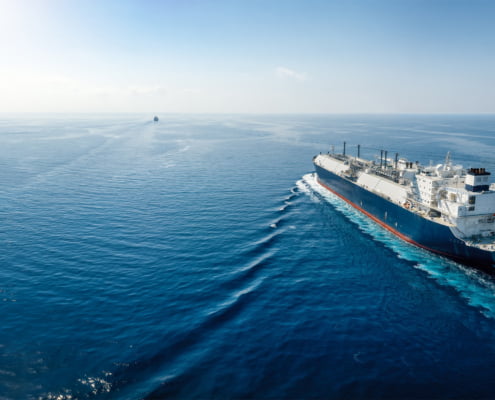At least six more oil tankers stayed away from the southern Red Sea on Monday due to increased disruptions on a vital route for energy transportation following US strikes on Houthi targets in Yemen.
Tankers have started to avoid the Red Sea after the US struck Houthi targets. Following the attacks, the US-led Combined Maritime Forces (CMF) based in Bahrain warned all ships on Friday to avoid the Bab al-Mandab Strait at the southern end of the Red Sea for several days, according to tanker organization INTERTANKO.
Before the US and UK attacks on Yemen, it was mostly container ships that avoided the Red Sea, and oil tanker traffic was largely unchanged in December.
But since the CMF’s warning, an increasing number of oil tankers have been avoiding the region, increasing the potential for disruption to east-west oil supplies through the Suez Canal.
Reuters counted six tankers that have changed course since the strikes began on Monday, bringing the total to at least 15 vessels, based on ship tracking data from LSEG and Kpler.
The tankers, Torm Innovation, Proteus Harvonne and Alfios I, appear to have moved away from the Suez Canal, opting for the longer route around Africa’s Cape of Good Hope to Europe and the US.
Pacific Julia and STI Topaz tankers are also heading towards the Cape.
On January 12, the tanker Octa Lune made a U-turn north of the Red Sea and returned to the Mediterranean with a cargo of naphtha bound for Taiwan.
Tankers that diverted or stopped either followed the longer Cape route or stopped in the Gulf of Aden or the northern Red Sea.
Taking the longer route around the Cape can add three weeks of sailing time.
The list of deviations from the route may grow as shipowners implement their policy of steering away from the Red Sea.
Tanker owners such as Torm, Hafnia and Stena Bulk announced that they will avoid Bab el-Mendeb from Friday, while Euronav confirmed that it has temporarily suspended transits through the Red Sea.
The opinions expressed herein are the author’s and not necessarily those of News2Sea.
